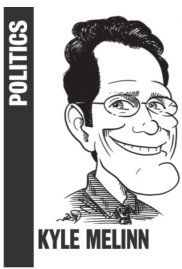 More than seven years of a completely Republican-run state government and progressives are getting antsy. Petitions for at least seven left-leaning ballot proposals have been actively circulated and now they’re starting to roll into the Secretary of State’s Office just ahead of Thursday’s deadline.
More than seven years of a completely Republican-run state government and progressives are getting antsy. Petitions for at least seven left-leaning ballot proposals have been actively circulated and now they’re starting to roll into the Secretary of State’s Office just ahead of Thursday’s deadline.
An initiative to allow workers in larger companies up to nine paid sick days a year (five paid sick days for employees of small businesses) was turned into the Bureau of Elections on Tuesday, joining petitions for recreational marijuana, a redistricting reform and a $12 minimum wage.
Another ballot attempt to establish no-reason absentee voting and other Election Day reforms is on the way, thanks to the ACLU and the League of Women Voters. It’s possible an initiative to solidify the state’s prevailing wage law is coming, but its prospects are dicey due to a late start and the uncertainty behind the anti-prevailing wage ballot proposal.
However, these initiatives are starting to bear fruit for the political left.
Consumers Energy and DTE have already agreed to a 50 percent “clean energy goal” by 2030 as opposed to letting environmentalist billionaire Tom Steyer’s ballot proposal to create a 30 percent renewable mandate by 2030 make the November ballot.
The Michigan Senate and House are having serious discussions about voting to legalize recreational marijuana as opposed to putting it before voters. The idea is that the Legislature could later amend the voter-initiated law with a majority vote in both chambers to make it align with the state’s medical marijuana regulatory scheme.
If the Legislature doesn’t do anything by Tuesday, it goes on the November ballot. If approved there, the Legislature could only amend the new law with three-quarters support, which proved to be a tough hurdle last time they attempted it.
The Bureau of Elections has until later the summer to finalize all of the proposals and assign numbers to everything, but as of now, here’s an update on where they all stand.
— Voters Not Politicians, the effort to take the decennial legislative and congressional map drawing out of the hands of the state Legislature and put it into the hands of an independent commission that holds numerous hearing across the state.
A group led by a pair of long-time Republican supporters is trying to argue in court that the initiative didn’t republish all of the constitutional provisions it changes. Meanwhile, VNP has started its door-to-door campaign drive to hit 1.9 million doors by Nov. 6. They won’t know for several weeks if they’ll be Proposal 1, 2 or 3, but they are taking the message to registered voters confident in their ability to make the November general election ballot.
— The last two times a group put forward a minimum wage increase, the Michigan Restaurant Association and the business community cut a deal to prevent the measure from taking the ballot. That’s not likely going to happen this time.
It’s not necessarily the $12-an-hour minimum wage that has restaurants reluctant to deal. It’s the change to gradually move up the salary of tipped workers — bartenders and waitstaff — to the minimum wage. Some bartenders and waitstaff don’t want this, arguing they make plenty of money in tips and a higher minimum wage will increase prices, scare away business and leave their places of employment on rocky ground.
— Time to Care would allow workers at companies with 10 or more people to earn one hour of sick time for every 30 hours of paid work that can be banked to up to seven paid days off. For those companies under 10, workers could bank up to four days off by getting one hour of sick time for every 30 worked.
Organizer Danielle Atkinson said she’s willing to talk to the interest groups about a possible compromise the Legislature could adopt, but no talks have occurred as of yet.
— The ACLU and LWV-driven Promote the Vote is expected to make the ballot by Thursday. It will allow voters the ability to vote straight party, automatically register citizens to vote unless the citizen declines and create no-reason absentee voting, among other elections reforms.
— The anti-fracking initiative that has been attempted for three straight election cycles is going to turn in more than the necessary signatures to make the ballot, but many of them were collected outside of the legally required 180-day window, meaning the group will need to argue in court why it should be allowed on the ballot.
This one is far from a sure bet, but one to keep an eye on, regardless.
All the while, the Michigan Chamber of Commerce is looking at creating a “just say no” drive designed to roll over all of the ballot proposals like bowling pins, similar to what happened in 2012 with all of those defeated ballot questions.
(Kyle Melinn, news editor of the capital newsletter MIRS, can be reached at melinnky@gmail.com.)
Support City Pulse - Donate Today!
Comments
No comments on this item Please log in to comment by clicking here